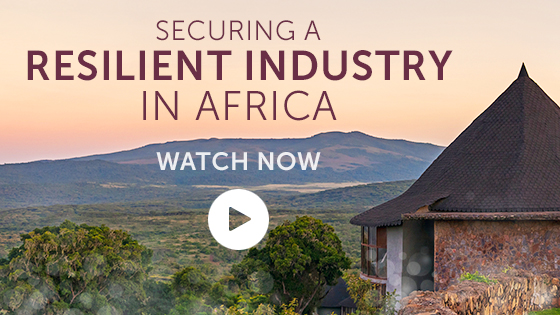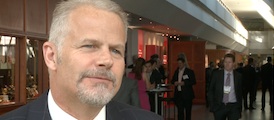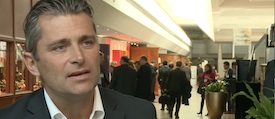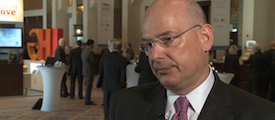The Resort & Residential Hospitality Forum (R&R) was held in Athens last week and brought together leading investors, developers, and hospitality professionals to discuss the current resort and residential real estate industry. While taking place in Athens for the first time, the forum continued to offer valuable insights into how the sector is evolving and how it sits in the current hospitality investment landscape. We have distilled some of the reports, including from Hospitality Investor and Savills, into key themes that are influencing hospitality investment and development across the globe.
Greece
For years, Spain has held a dominant position as the preferred destination for Mediterranean hospitality investment. Perhaps unsurprisingly, given the location of the event, Greece was put forward as a formidable competitor. According to Hospitality Investor, Greece is now a market of higher potential returns compared to its Western Mediterranean counterpart, with strong growth in its luxury and eco-conscious offerings.
This shift can be attributed to several factors, including increased government incentives, robust tourism growth, and a pivot towards year-round destinations. High-profile developments in Athens, the Cyclades, and the Peloponnese are attracting global attention, with a focus on luxury resorts and branded residential projects. These developments highlight Greece’s ability to offer not just natural beauty but also long-term investment returns, with a strategic focus on sustainable and premium tourism experiences.
Branded Residences
The branded residences market continues to expand, driven by demand for premium living experiences that combine private ownership with the quality and service of luxury hotel brands. According to the Branded Residences Annual Report 2024-2025 by Savills, this market is expected to grow by 12% globally over the next two years. The report notes that branded residences have historically been associated with ultra-luxury brands, but mid-market operators are entering the space, appealing to a wider audience.
Branded residences offer clear benefits for all stakeholders. Developers gain diversified revenue streams and enhanced brand loyalty, while buyers enjoy an exclusive ownership experience supported by five-star hotel services. For investors, branded residences represent an opportunity to tap into growing demand for high-quality, flexible living options. In Greece, these projects are increasingly integrated into mixed-use developments, combining residential units, hospitality offerings, and retail spaces. This approach aligns with the broader “placemaking” trend, where creating vibrant, interconnected communities is as important as the individual buildings themselves.
The Modern Traveller
One of the most striking discussions at the forum was around the evolving expectations of today’s travellers. Modern consumers are prioritising authenticity, personalisation, and immersive experiences over traditional notions of luxury. This shift is driving developers to innovate and rethink how properties are designed and operated.
Hospitality Investor observed that guests increasingly favour properties that integrate local culture, wellness-focused designs, and sustainable practices. For Greece, this has translated into a focus on eco-conscious resorts and developments that blend seamlessly with their natural surroundings. For example, developers are prioritising green building practices, such as the use of renewable materials and energy-efficient technologies. There is also a growing emphasis on experiential travel, with properties offering cultural immersion, farm-to-table dining, and bespoke wellness retreats. Meeting these expectations is essential for operators aiming to remain competitive in an increasingly discerning market.
Increased Liquidity in Leisure Investments
Another significant trend discussed at the forum was the anticipated increase in liquidity within the leisure sector. Institutional investors are expected to unlock substantial capital in the coming year, particularly for leisure-focused assets. According to this article, mixed-use developments are proving particularly attractive for their ability to cater to multiple market segments while delivering stable returns.
For developers, this means aligning projects with institutional investment flows. Mixed-use developments, which combine hospitality, branded residences, and retail components, are particularly appealing due to their diversified revenue streams and ability to address multiple consumer needs. This offers exciting opportunities for projects that balance scalability with innovation and sustainability.
Sustainability
As with most recent European conferences, Sustainability emerged as a central theme throughout the forum. It is no longer a “nice-to-have” but a fundamental expectation from both investors and consumers. Savills emphasise the importance of incorporating environmental, social, and governance (ESG) principles into development strategies, noting that guests are increasingly drawn to properties that demonstrate tangible commitments to sustainability.
Developers are responding with innovative approaches, from carbon-neutral building designs to waste reduction programmes. In Greece, the integration of sustainability into new developments is particularly significant, as it ensures the preservation of the natural beauty that is such a key draw for the country’s tourism. For example, many luxury resorts in Greece are adopting renewable energy solutions, such as solar power and water recycling systems. These initiatives not only reduce environmental impact but also appeal to the growing segment of eco-conscious travellers.
Takeaways
The discussions at the R&R Forum offered a clear message: the hospitality and residential sectors are at a pivotal moment of transformation. For developers, operators, and investors, adapting to these changes is essential for future success.
- Target Emerging Markets: Greece and other underexplored regions offer untapped potential for savvy investors. Identifying the right opportunities in these markets can lead to significant returns.
- Innovate with Branded Residences: As this market continues to grow, incorporating branded residential components into developments can offer long-term financial and operational benefits.
- Prioritise Sustainability: ESG goals must be integrated into every stage of development. This is not just a trend but a consumer and regulatory expectation.
- Understand the Modern Traveller: Developers must align their projects with the demand for authenticity, wellness, and cultural immersion.
- Leverage Liquidity Trends: Mixed-use developments that cater to multiple income streams and market segments are key to capturing institutional investment.
From Greece’s emergence as an investment hotspot to the rise of branded residences, the R&R Forum highlighted the resilience and adaptability of the hospitality and residential sectors which are now poised for a positive 2025. By staying ahead of market trends and aligning strategies with consumer and investor expectations, we help ensure that our clients are well-positioned to capitalise on new opportunities and proactively manage challenges. If you would like to have a chat about how we can support your people strategy then please get touch.
Dan Akhtar, Managing Director – HPG Advisory Services
+44 208 600 1166 / +44 7808 157796
[email protected]









